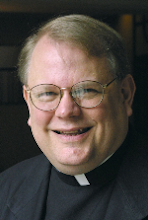
ON ELECTING OUR CIVIC LEADERS
FROM THE CATHOLIC BISHOPS OF MASSACHUSETTS
One of the greatest blessings of our American democracy is the opportunity it affords to its citizens to step up and share their vision of a better society. Even in these difficult social and economic times, we continue to strive for a community in which all can benefit, and from which no one is excluded.
It was the same yearning for a better life for everyone that brought many of our ancestors to this country. So it is a deeply-rooted concern for the common good that has moved us throughout our history to participate in the election process. Our convictions about the importance of voting are bolstered by the innate sense of hope that has endowed this nation with such promise in good times and in bad. We go to the polls no matter the direction of the social and economic trends at the time.
As Catholics we also are a people of hope. Hope is the Christian virtue that confirms our belief that we are never abandoned, and that we are always loved by God. We express these truths every time we extend our love to others as part of one human family. This same hope guides our civic involvement.
Because the common good is at stake, it is imperative that we exercise our right and duty to vote. As recognized by Pope Benedict XVI, the laity should “participate in political life, in a manner consistently in accordance with the Church’s teaching, bringing their well-founded reasons and high ideals into the democratic debate[.]” Papal Address to the Pontifical Council for the Laity (May 21, 2010).
Particularly for us as Catholics, voting is an exercise of reason inspired by faith. The Holy Father has thus observed: “Just as every economic decision has a moral consequence, so too in the political field, the ethical dimension of policy has far-reaching consequences that no government can afford to ignore[.]” “This is why,” he continued, “the world of reason and the world of faith—the world of secular rationality and the world of religious belief—need one another and should not be afraid to enter into a profound and ongoing dialogue, for the good of our civilization.” Papal Address at Westminster Hall, England, Sept. 17, 2010.
Our participation as citizens in the electoral process allows us to propose our vision for this country and about our future as a democracy. Thus voting is above all an opportunity—an occasion for contributing our insights as Catholics to the civic discussion nationally and locally, thereby inspiring social change consistent with our country’s foundational values.
Deciding which candidate in any particular race offers the best opportunity to take us in the right direction is not an easy task. Yet there is a measuring rod by which all electoral choices must be evaluated: will my vote enhance human dignity?
Certain moral and social issues are fundamentally important, since human rights are at stake and must be protected to help democracy to flourish in a way that benefits every citizen. These include the defense of the sanctity of life, the family based on marriage between a man and a woman, religious freedom, and the well-being of the poor. As shifts in societal challenges are inevitable, it is also vital to determine from election to election which human rights face the greatest threat at the time of voting.
The opportunity to vote is a blessing. Taking advantage of this opportunity is an expression of hope. Go to the polls on Election Day and, through your choices at the ballot, act on your vision of a better society.
+ Cardinal Seán P. O’Malley, O.F.M. Cap. Archbishop of Boston
+ Bishop Robert J. McManus, Bishop of Worcester
+ Bishop Timothy A. McDonnell, Bishop of Springfield
+ Bishop George W. Coleman, Bishop of Fall River
MASSACHUSETTS CATHOLIC CONFERENCE, October 25, 2010

